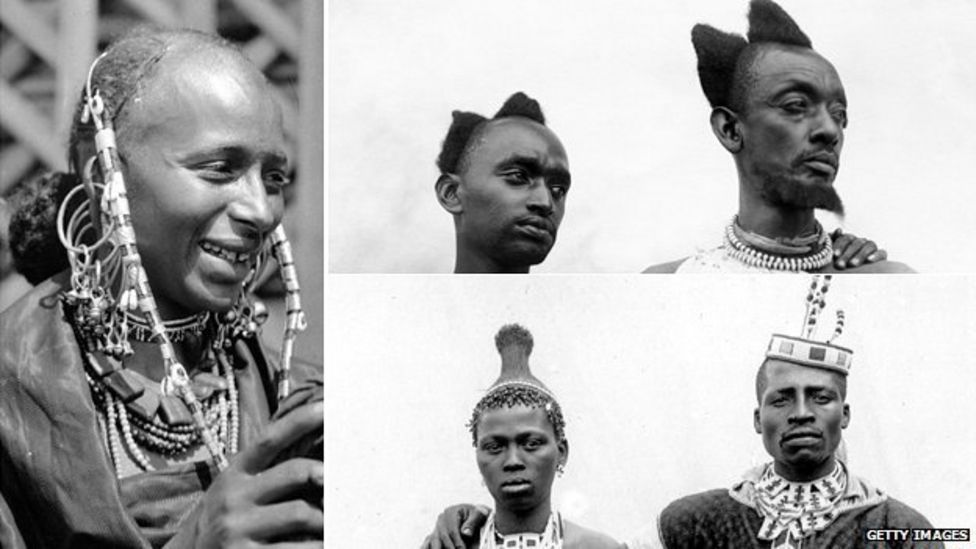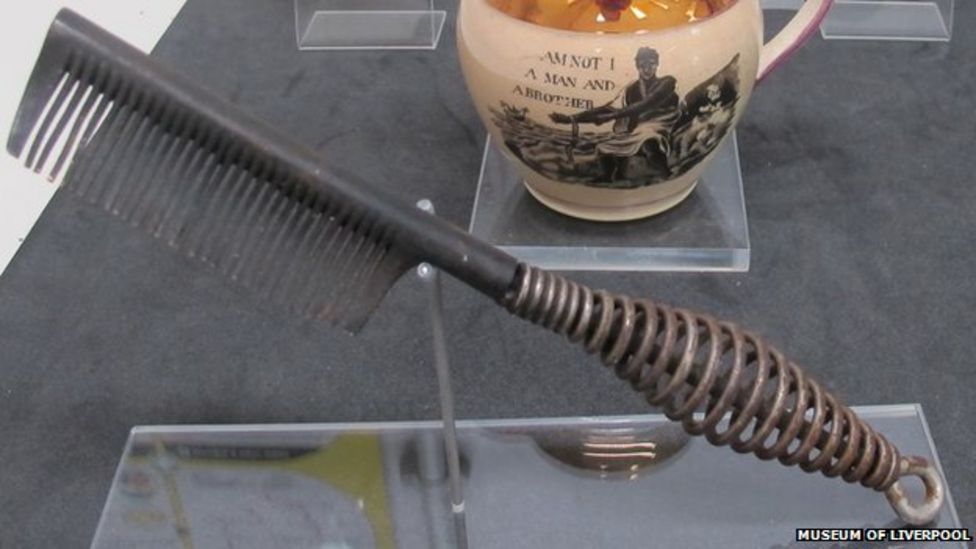Early African Civilization
In early African civilisations, hairstyles could indicate a person's family background, tribe and social status.
Headdresses and hairstyles indicated status and identities across Africa, including Cameroon (left), Ivory Coast (top) and southern Africa.

